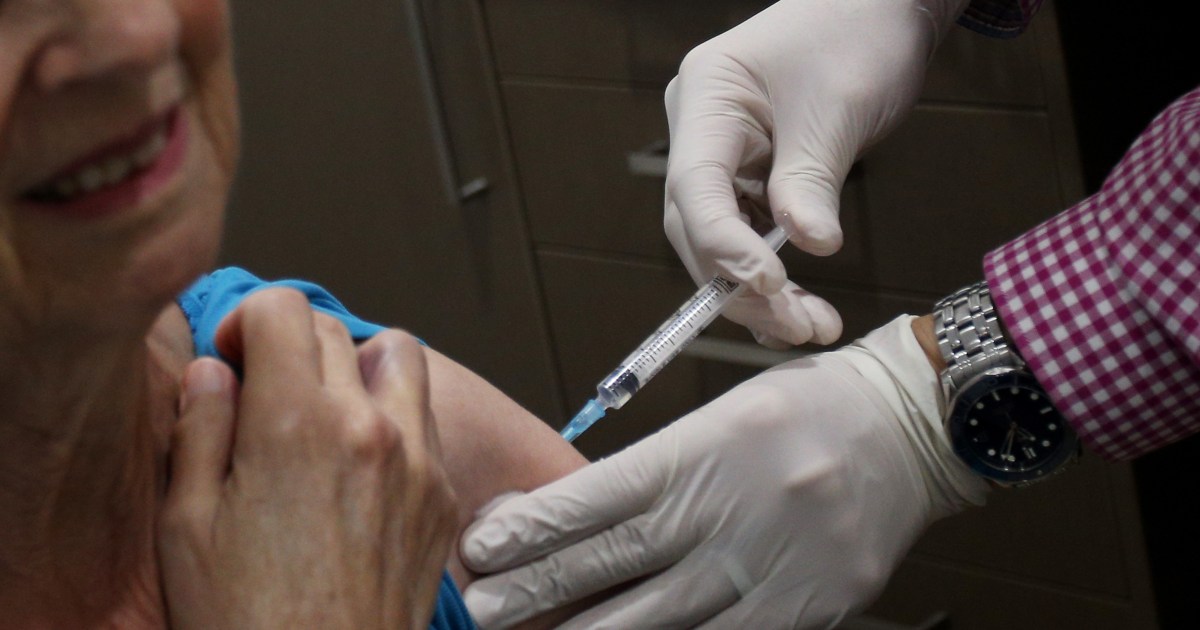The Secretary-General of the United Nations, António Guterres, criticized the "unfair distribution" of anti-virus vaccines in the world, calling on the rich countries that "store" huge quantities of these vaccines to share part of them with the rest of the world, and for its part Venezuela proposed the formula of "oil for the vaccine." To break the international sanctions imposed on it.
"I am extremely concerned about this unfair distribution of vaccines in the world," Guterres said in an interview broadcast by Canadian television network CBC.
"We appeal to developed countries to share (with poor countries) part of the vaccines that they have purchased," he added, stressing that these countries "in many cases bought more than they needed."
The Secretary-General expressed his regret at the "difficulties" facing the work of "COVAX", the mechanism established by the World Health Organization to make vaccines available to low-income countries, attributing the causes of these difficulties to "storing large quantities of vaccines" and imposing "restrictions on exports" and not occurring. Kovacs' get enough money.
Venezuela ... Oil Swap
On Sunday, Venezuelan President Nicolas Maduro proposed the "oil for vaccine" formula to enable his regime - which is subject to international sanctions that affect especially the oil sector - to buy vaccines against the Corona virus, at a time when the country is passing through its second epidemic wave.
The state-owned Venezuelan Oil Company and Caracas are subject to international economic sanctions, especially from the United States, which wants to overthrow Maduro since he was re-elected in 2018 in elections that a section of the international community considered rigged.
The phrase "oil for vaccination" recalls the "oil for food" program set up by the United Nations to provide assistance to the Iraqi people, despite the economic sanctions that were applied to the regime of the late President Saddam Hussein due to his invasion of Kuwait in 1990.
In France, doctors in intensive care units in hospitals in the capital, Paris, warned yesterday, Sunday, that they may have to choose between patients who must be treated, due to the high rates of infection with the Corona virus in the country.
"We have not witnessed such a situation, even during the height of the first Corona wave in the country in 2020," the doctors said in a statement signed by 41 of them from the Paris region.
They indicated that the current situation may force them to choose between all patients, whether they suffer from Corona or not, with priority given to adults in critical condition.
In their statement, these doctors emphasized that the goal of the hospitals is to save the largest possible number of lives.
The statement came as President Emmanuel Macron strongly defends his decision not to impose a general lockdown in the country again, as he did last year.
Since January this year, Macron's government has imposed a nationwide overnight curfew, and this has been followed by a series of other restrictions.
But the high number of injuries and the increasing shortage of intensive care beds in hospitals have prompted doctors to intensify pressure to impose a complete closure.
Every week, the health authorities count more than two thousand deaths among people with corona.
In Germany, Chancellor Angela Merkel pressed the states on Sunday to intensify efforts to curb the increasing number of infections with the Coronavirus, and raised the possibility of imposing a curfew in an attempt to control a third wave.
Merkel said, in a rare appearance on the "Ann Will" program broadcast on the "ARD" television station, that if states do not start implementing the measures with the appropriate seriousness in the "very foreseeable future" they will have to think about steps that can be taken at the level of Country.
She added that one of the options would be to amend the Infection Protection Act, to stipulate what should happen under specific scenarios, adding that the government and the states are obligated to contain the infection.
The chancellor indicated that she is not convinced that the measures taken so far are sufficient to break the third wave of the epidemic.
"We need to do more, we have the potential to impose restrictions on going out, more restrictions on mixing, more (commitment) to wearing masks, as well as strategies for screening in all places twice a week," she said.

